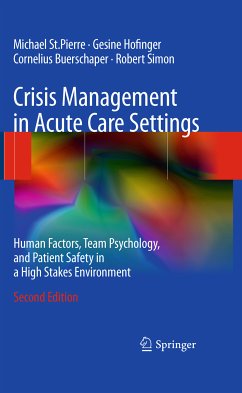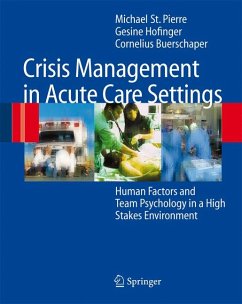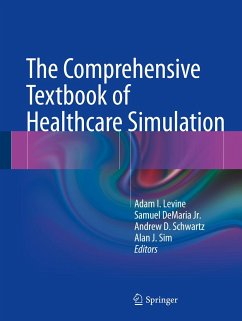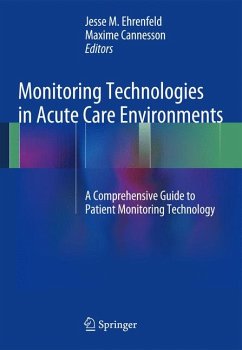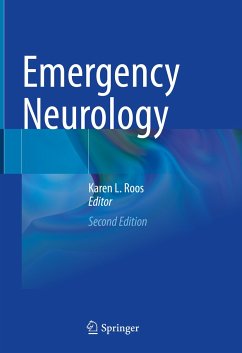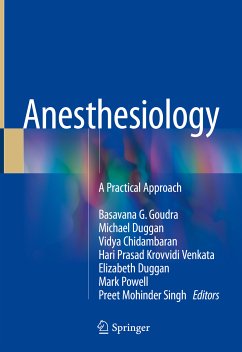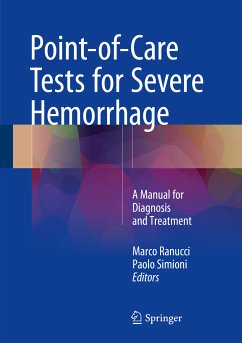
Crisis Management in Acute Care Settings (eBook, PDF)
Human Factors and Team Psychology in a High-Stakes Environment
Versandkostenfrei!
Sofort per Download lieferbar
80,95 €
inkl. MwSt.
Weitere Ausgaben:

PAYBACK Punkte
40 °P sammeln!
This book is unique in providing a comprehensive overview of the human factors issues relevant to patient safety during acute care. By elucidating the principles of human behavior and decision-making in critical situations and identifying frequent sources of human error, it will help healthcare professionals provide safer, more effective treatment when dealing with emergencies characterized by uncertainty, high stakes, time pressure, and stress. The third edition has emerged from an ongoing synergistic relationship between clinicians and behavioral scientists on both sides of the Atlantic to u...
This book is unique in providing a comprehensive overview of the human factors issues relevant to patient safety during acute care. By elucidating the principles of human behavior and decision-making in critical situations and identifying frequent sources of human error, it will help healthcare professionals provide safer, more effective treatment when dealing with emergencies characterized by uncertainty, high stakes, time pressure, and stress. The third edition has emerged from an ongoing synergistic relationship between clinicians and behavioral scientists on both sides of the Atlantic to update and enhance each chapter -- blending the strengths of the two professions into a readily accessible text. Among other improvements, readers will find sharper articulation of concepts and significantly more information on the organizational impact on individual and team performance. Crisis Management in Acute Care Settings is the required reference for all who are learning about, teaching, or providing acute and emergency healthcare. It will be of high value for undergraduate and graduate medical and nursing program and offer a much-needed resource for those who use high-fidelity healthcare simulation to teach teamwork.
Dieser Download kann aus rechtlichen Gründen nur mit Rechnungsadresse in A, B, BG, CY, CZ, D, DK, EW, E, FIN, F, GR, HR, H, IRL, I, LT, L, LR, M, NL, PL, P, R, S, SLO, SK ausgeliefert werden.



